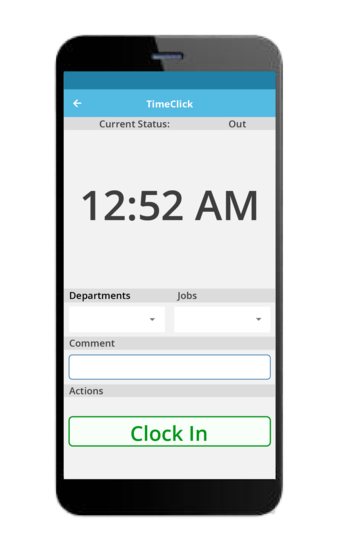Fifty thousand. That’s how many people Google this topic on a monthly basis. As a result, if you have experienced uncertainty on how to approach your boss about a raise, you’re not alone.
In truth, this statistic comes as no surprise. Every year the goods and services we make everyday use of continue to creep upwards in price. Inflation shows no sign of stopping any time soon.
With that said, inflation never represents the only reason for income raises. Changes occur in the workplace that may have expanded or evolved your job responsibilities.
Regardless of the reason, you’re likely pondering this question because you feel you deserve a raise. Let’s dive into how to ask for a raise.
Foundational Advice
Before we discuss raises, we must first dive into the best onboarding practices for you as the employee. With an average of over 6 million hires every year in the United States, you likely have gone through various hiring processes.
A simple way of protecting yourself, as well as your company, involves your ownership of your job description. Read it, know it, and if you can, sign it with your hiring manager.
This practice manifests itself in the EOS (Entrepreneurial Operating System) principle of seats. EOS refers to positions as seats and urges employers to define seats with detail to effectively delegate company responsibilities in an organized fashion.
On one hand, owning your job description can protect you in two major ways.
First, you can improve your onboarding experience by increasing your ability to focus on your tasks since you already know your responsibilities. Intimately demonstrating knowledge of your responsibilities can help equip and train you for the position.
Second, you can objectively demonstrate the scope of your job duties and avoid a conflict of your word against your manager’s word. Have you ever received instructions to do tasks you did not know you were responsible for?
Maintaining solid understanding and preserving records of your job description can help you navigate these types of situations.
On another hand, owning your job description can set you up to discuss pay raises.

Just make sure you have the right tools in hand.
Why Do You Deserve a Raise?
Rarely do employees receive pay raises without any communication. This means you will have to have a conversation about your compensation.
The following represent some of the major reasons you can give before deciding how to ask for a raise.
Change in Job Duties
Especially in the case of small to midsize companies, you may find your day-to-day responsibilities shift and change over time. The clearest examples of this phenomenon center on changes in technology.
Take a receptionist position as an example. Ten years ago, your responsibilities as a receptionist may have included answering the phone and maintaining a physical calendar hung on the wall.
Today, you may have to anticipate customer interactions from the phone, social media, or online chat. The appointments customers make may then populate on a Google calendar you maintain and share with your other team members.
Essentially, you may still do the same thing: interact with customers and set appointments. Practically, however, your duties look different and require a different set of skills and knowledge.
Alternatively, your job duties may change with no regard for technological advancements. Perhaps the needs and scope of the company have changed. The COVID-19 pandemic stands as a recent and hugely influential event that caused drastic change all over the world.
For example, say you work in the food service industry. Prior to the pandemic, you may have kept busy by taking orders and serving customers. Since COVID hit, you may spend all of your time checking and packing pickup orders instead.
In nearly all cases, any change in job duties at least warrants a conversation with your boss. Changes that require new skills or knowledge can especially demonstrate your worthiness of a pay raise.
Seniority or Tenure
The amount of time you’ve worked does not serve as an adequate reason for a raise on its own. Your employer likely will not care how long you’ve worked if you produced half-hearted work overall.
With this in mind, the amount of time you worked can serve as an important piece of support if you produce consistently good work. If you have worked for at least one year without any changes in pay, it may be time to talk to your boss.
Some companies even maintain policies that mandate certain periods before pay raises. Know your company policies – doing so can only help you.
Occupational Development
The company you work for may suddenly find itself in need of someone with particular skills or qualifications. Perhaps a forklift driver quit their job, or a veterinary technician needs to take maternal or paternal leave.
Other cases may involve a human resources employee who got promoted to an executive position, or a sales manager who switched to become a manager in another department.
Whatever the reason, the sudden change may present you with an opportunity to pursue a change in income by gaining a new certification or educational degree.
The key point at play here involves the needs of your company.
For instance, your graduation with a bachelor’s degree will not suddenly qualify you for a pay raise as a barista at a coffee shop. This is because your duties as a barista have little to no connection with the education you gained with your newly earned degree.
Similarly, your new certification as a forklift driver may lose its importance if your company hires a new replacement forklift driver.
Changes in Industry Standards
Pay rates can change for a vast range of reasons. Take computer engineering, for instance. In the year 2000, the national average salary for a computer engineer was just under $50,000.
In 2021, the national average for the same job sat comfortably at $85,000.
These changes in income warrant research from time to time. Take a few minutes to do a quick search on national averages for your job’s pay. If your income falls significantly below the average, speak to your employer about at least matching the national average.
Ideally, the discrepancy came from ignorance and not malicious intent. If you cannot find justifiable reason for your employer to try and match the national average pay for your job, you may want to re-evaluate the merits of your current position

Simplify Time Tracking with TimeClick!
Download our free trial—simple, secure, offline tracking, no fluff.

Approaching the Conversation about a Raise
Each of the aforementioned points underscore one important principle: you need to demonstrate value to your employer. Let’s explore some value-driven methods for how to ask for a raise.
Merit-Based Value
This approach centers on driving value for a pay raise based on what you have accomplished for the company. Major achievements can represent an accumulation of excellence and good work.

Let’s explore this scenario a bit further. Say you do marketing for your company. After researching the most profitable marketing efforts for your industry, you decide to invest time learning SEO principles.
Your SEO work then puts your company’s website on page 1 of Google and drastically increases leads as a result. This achievement marks a major professional accomplishment for you.
The resulting increase in business and the page 1 status of the company website can serve as clear pieces of supporting evidence for a pay raise.
Competitive Value
Driving competitive value takes your position and compares your pay to that of the industry standard. Here’s an example.
Let’s branch off the previous example of you working as a marketer. Your work in getting to page 1 of Google stands as tangible evidence of your prowess in SEO.
This fact can provide evidence that you should receive the pay of an SEO specialist, instead of a junior marketing representative.
You can also drive competitive value in other ways. If your employer seems loath to give you a raise, you can take a more aggressively competitive approach and reference other companies that pay a higher rate.
This approach involves something like, “X” company pays their marketers “X” salary, but you only pay “Y” much.
This approach generally follows the opportunity to get another job. With that in mind, you need to prepare yourself for a negative response. Your employer’s refusal of a pay raise can come with a demand of resignation or even termination.
We do not recommend this aggressive approach if you want to keep your current position. You should only take this approach if you are wiling to lose your job.
Tenure-Based Value
Driving tenure-based value appeals to your employer’s sense of loyalty. This conversation focuses on how long you have worked at your current position with consistent productivity.
You should not fear this approach for requesting a pay raise. A tactful approach conveys how important your work is to you and how important you are to the team.
Remember – employers want their employees to stay. New hires can bring a lot of uncertainty and onboarding-related expenses.
As a result, your employer will want to eliminate any reasons for you to leave your position. You can leverage this by emphasizing the amount of time you have worked since your last raise, if you have had one.
Facilitating An Effective Conversation
With all of this information, you may still wonder how exactly to phrase your thoughts. The best intentions will not go far without effective communication.
Let’s dive into some fundamental communication principles.
Exclude Subjectivity when Asking for a Raise
Vague and generalized phrases do little to help you. If anything, they allow the other person to interject their own perspective and can invalidate your own.
Here’s an example. You decide to take a tenure-based value approach. You start the conversation off: “Hey Boss, I know I’ve been working here a long time.”
The phrase “a long time” is vague and introduces subjectivity. To you, a year may represent a long time. To your boss, a decade may represent a long time.
Using this kind of vague language only opens the door for your employer to say something like, “Well you started last April. The others have worked for years before you came here.”
Instead, you should include as many specifics as possible. You could say something like, “Hey Boss, I know I’ve been working here for about thirteen months.”
Your boss cannot refute that statement. Thirteen months is thirteen months no matter what.

In the same way, you can even articulate opinions in a less subjective way.
You say something like, “Hey Boss, this last project was a lot of work and I think I deserve a raise.” Your boss could easily respond like, “What? That’s not a lot of work.”
Instead, you can voice your opinions in terms of how something made you feel. You could say, “Hey Boss, the last project made me feel overworked since I pulled the most overtime I ever have.”
This phrasing does not guarantee your employer can’t respond. However, most people have a harder time refuting how something made you feel. They often cannot provide an unopinionated response that invalidates your claim.
On another point, it may be a red flag if your employer does try to refute how you felt.
Maintain Tactful Professionalism
Generally, you will want to exclude emotion from a business conversation. You do not want to create the connotation of a pay raise as charity, for instance.
Even if your employer gives you the raise, he/she could take on an attitude like that of a savior or a lender. This situation can allow your employer to try and invalidate your opinions and strip you of a voice.
Conversely, do not let frustration or anger overwhelm you. An angry outburst just gives more fuel to an employer who does not want to give you a raise.
Keep It Short and Simple
KISS (keep it short and simple) generally serves as good advice for communicating anything. Beating around the bush can confuse the conversation and can also convey a lack of confidence.
Speak in a direct manner and maintain eye contact. Do not confuse confidence for arrogance – exude the feeling that you truly are worth an income raise.
Conclusion
There isn’t one right answer to how to ask for a raise. Since each person communicates differently and possess unique strengths, you must understand your own to optimize the conversation’s outcome.
Before you dive into the conversation, consider important factors including your tenure at the position, your relevant skills, and any significant achievements earned.
Remember that the amount of time you’ve worked does not warrant a pay raise on its own. You need to demonstrate your value as an employee by demonstrating tangible evidence.
With these key pieces in play, you must articulate and showcase them in a succinct and direct manner that your boss will easily understand.
Even with all of these key components, the conversation may not provide the desired result. A whole host of circumstances can contribute to your boss’s decision in the end.
Advocate for yourself by equipping yourself with the knowledge and skills to attain the results you want.
How TimeClick Can Help
A huge range of options exist to help entrepreneurs and small business owners make the right decisions. Consider organizational systems like EOS to serve as an effective platform for company communication and management.
Our team uses EOS to stay organized and focused. For any questions about approaching the boss or how systems like EOS can help guide the conversation about pay raises, feel free to reach out to us.
We’re available for you by phone at (435) 753-4102, by email at sales@timeclick.com, and by chat on our website.
Ready to streamline your employee time tracking, boost productivity, and simplify payroll? Sign up for your FREE 14-day trial today and see how TimeClick can transform your business!
Start your FREE TimeClick Trial Today.

